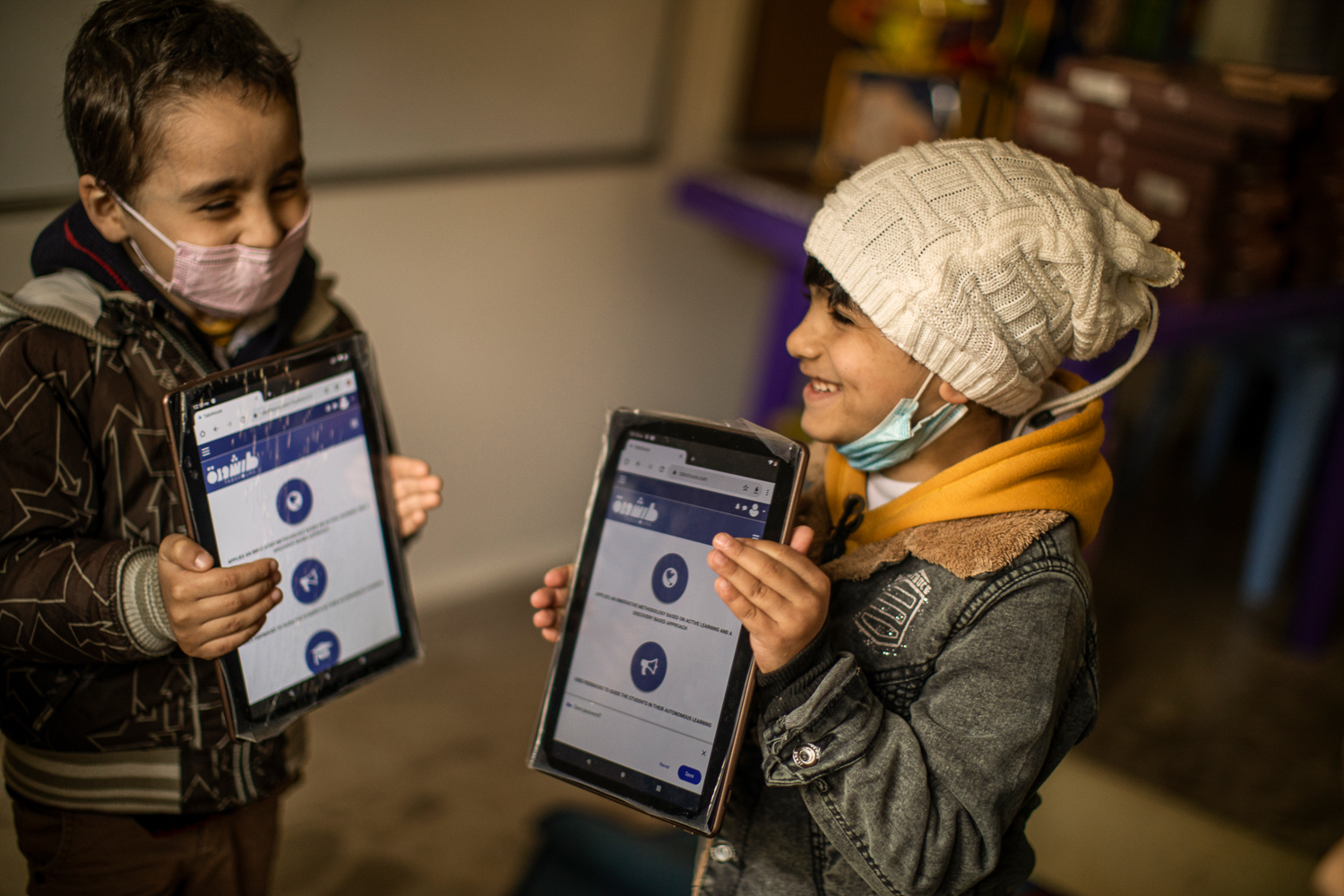
Girls show how technology skills can change their lives
Barriers to education, Girls' education, International Women's Day, Right to education, Teachers and learning, Technology and education
Females across the globe are celebrating International Girls in ICT Day - and Theirworld has been working to change embedded values through our Code Clubs in Africa.
Around the world today, girls and young women have been demonstrating their technology skills at hundreds of events.
From Brazil to Egypt, Thailand to Tanzania, they have been celebrating International Girls in ICT Day by building apps, making videos, developing websites and sharing their experiences.
But for too many girls and women, getting into information and communications technology at school and in the workplace is still a massive struggle.
In developing countries, men are 2.7 times more likely to work in the digital sector. And across the world as a whole, fewer than a quarter of digital jobs are held by females.
Theirworld has been working to change the embedded values that hold back girls and women through our #RewritingTheCode campaign and our Code Clubs in African countries.
Our latest Code Clubs were launched in Tanzania last month on International Women’s Day, in partnership with the organisation BRAC Maendeleo Tanzania.
They provide a safe space for girls to learn coding, foster their creative thinking and increase important business and health-related knowledge and skills to help transform their lives.
The new clubs are in the Temeke district of Dar es Salaam, where many girls have dropped out of school and the risk of teenage pregnancy is high.
At the launch, Theirworld Project Manager Bisma Mowjee Paul said: “With a safe space to learn and play, a mentor to inspire and access to technology to be able to explore, create and code, we can increase learning opportunities and empower girls to fulfil their potential.
“Every girl should have the opportunity to go to school, learn, grow and have a future they choose. ”
Theirworld has previously launched Code Clubs for girls in Kenya, Uganda and Nigeria.
The STEM (Science, Technology, Engineering and Mathematics) industries are creating huge numbers of jobs across Africa – but gender discrimination and lack of access to education and technology means girls are often kept out of the work force and unable to break the cycle of poverty.
International Girls in ICT Day is organised by the International Telecommunication Union (ITU) – the leading United Nations agency for telecommunications and ICTs. It highlights the value of women in technology and aims to encourage more girls to plan for a career in the field.
Since the annual day was launched in 2014, more than 240,000 girls and young women have taken part in over 7200 celebrations in 160 countries.
To mark International Girls in ICT Day, a new report titled Women’s Pathways to the Digital Future was published today by Germany’s development ministry ahead of the G20 summit in Hamburg in July.
It said women in STEM careers earn 33% more than their non-tech counterparts – so an expanded pool of females in STEM-related fields would help countries to promote sustainable development.
But research shows that if girls from developing countries are not exposed to the opportunities that STEM careers offer by the end of middle school, they are unlikely to pursue education and careers in these fields.
“In general, digital literacy skills or even more advanced skills such as coding still find little representation in education systems,” said the report.

“Even when this requirement is fulfilled, education systems do not always provide inclusive opportunities for girls to participate in STEM subjects.”
That’s why initiatives like Theirworld’s Code Clubs are vital in encouraging girls into the world of technology.
When we opened our first Code Club at Kibera School for Girls in Kenya last year, 11-year-old student Diana said: “Girls should learn how to use computers because what boys can do girls can do better
“I think it’s not right that when girls are denied their chance to go to school because everyone needs to have his or her own knowledge so they can know how to control their lives.”
More news

Skills for the future give young people the best chance of success
